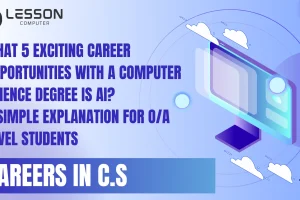
What is software development? – Everything Is Here To Khow
Software development is creating software applications, involving planning, designing, coding, testing, and maintaining programs to meet specific user needs or solve problems on computers, mobile devices, or other systems.
The article we will discuss is “What is Software Development.” We will look at what software development signifies, its major phases, and how it can help develop applications and systems that solve everyday life problems and satisfy users’ needs.
Types of Software Development?

There are many types of software development are briefly explained below:
- Web Development
- Mobile App Development
- Desktop Application Development
- Game Development
- Embedded Systems Development
- Data Science and Machine Learning
- DevOps Engineer
- Blockchain Development
- AR/VR Development
- Cloud Computing
- Artificial Intelligence (AI)
1. Web Development:
Web development is one of the most common types of development. It follows the same figures and priorities as other application development. Web app development defines the design of website software that runs on web browsers and other programs.
Web developers design applications and websites that let users like browsers from your software program. You can enter the software from any instrument with an internet connection, resulting in cost savings for teams on the go.
Languages:
- Frontend: CSS, HTML, and JavaScript
- Backend: JavaScript (Node.js), Python, Ruby (Ruby on Rails), PHP
Frameworks:
- Frontend: React, Angular, and Vue.js
- Backend: Express.js (Node.js), Django (Python), Laravel (PHP), and Ruby on Rails (Ruby)
2. Mobile App Development:
Mobile app development is the process of designing software applications that run on a mobile device, and a classic mobile application uses a network connection to work with small computing resources.
Languages:
- iOS: Swift, Objective-C
- Android: Java, Flutter, and Kotlin
Frameworks:
- iOS: UIKit, SwiftUI
- Android: Flutter, Xamarin, and Android SDK
3. Desktop Application Development:
Creating an application locally for computer devices is named desktop application development. Desktop app developers build these applications that are used specifically on desktops and laptops.
Languages:
- Windows: VB.NET, C#.
- macOS: Objective-C, Swift.
- Linux: Java, C++
Frameworks:
- Windows: UWP, WPF.
- MacOS: Cocoa.
- Linux: Qt, GTK.
4. Game Development:
Game Development is the activity of developing games and expressing the game’s design, development, and release. It may involve concept generation and design, build, development test, and release. While you create a game, it is important to think about the gameplay mechanics and rewards as well as engagement, and the level design.
Languages:
- Unity (cross-platform): UnityScript, C#
- Unreal Engine: C++
- GameMaker: GML (GameMaker Language).
Frameworks:
- Unity: Unity Engine.
- Unreal Engine: Unreal Engine.
5. Embedded Systems Development:
Embedded systems normally need to interface with other components or systems. Embedded development means integrating the embedded system with external sensors, devices, networks, and user interfaces. This enables the seamless exchange of information and connectivity of the different parts of a bigger system.
Languages:
C and C++: Commonly used due to their efficacy and capabilities at the low level.
Frameworks:
Arduino: For a simple embedded development
6. Data Science and Machine Learning:
Machine learning concentrates on creating algorithms that enable computers to gain knowledge from data and make predictions. However, data science has a wide focus, which encompasses many techniques for gaining insights and meaning of data including statistical analysis as well as data.
Languages:
- Python: NumPy, TensorFlow, Scikit Learn, Pandas, and PyTorch
- R: specifically for the analysis of statistics
Frameworks:
- TensorFlow and PyTorch: Deep learning frameworks
- Science kit Learn: Machine research in Python
7. DevOps Engineer:
The DevOps is a mixture of the terms development and operations. It represents a cooperative or shared approach to the tasks performed by an organization’s application development and IT operations teams.
Languages:
- Bash or Shell Scripting: For automation
- Python and Ruby: Scripting and automatizing tasks
Frameworks:
- Jenkins and Travis CI: Continuous integration
- Docker and Kubernetes: Containerization and Orchestration
8. Blockchain Development:
Blockchain development involves building, designing, and maintaining blockchain applications and systems. it aims to make use of the unique features of blockchain technology to resolve issues and generate opportunities. An example of innovative blockchain development includes the smart contract.
Languages:
- Solidity: for Ethereum smart contracts
- Rust and Go: For some blockchain platforms
Frameworks:
Truffle: Ethereum DApp development framework
9. AR/VR Development:
AR enhances the real world by providing digital overlays, whereas VR lets users experience completely virtual worlds. Both technologies are unique in their abilities and applications. For example, trying on clothes without having to step into a store or exploring architectural designs before they are made.
Languages:
- Unity (cross-platform): C#
- Unreal Engine: C++
Frameworks:
- Unity: Unity Engine
- Unreal Engine: Unreal Engine
10. Cloud Computing:
Cloud computing provides direct access to computing resources, such as physical servers or virtual servers, data storage, networking capabilities, application development tools software, AI-powered analytic tools, and more, all over the internet, together with pay-per-use pricing.
Languages:
- Python, Java, and C#: Generally used to run cloud-based applications
- JavaScript: Particularly for serverless computing
Frameworks:
Amazon Web Services (AWS), Microsoft Azure, and Google Cloud Platform (GCP): Cloud service providers using a variety of tools and frameworks.
11. Artificial Intelligence (AI):
Artificial intelligence (AI) is a technology that describes computers and machines to imitate human learning, comprehension, decision-making, problem-solving, creativity, and autonomy. Apps and devices that have AI can detect and distinguish objects.
Languages:
- Python: TensorFlow, PyTorch, and sci-kit-learn
- Java: Deep learning 4
Frameworks:
- TensorFlow, and PyTorch: Deep learning frameworks
- Scikit-Learn: Machine learning using Python
Steps of Software Development?

For a start, let’s explore the key steps involved in the development of software, from planning and design to deployment and ongoing maintenance to learn the process by which software is developed and then put into action.
There are different steps of software development:
- Analysis
- Design
- Implementation
- Testing
- Development
- Maintenance and Updates
- Documentation
1. Requirement Analysis:
The first step in the processing of software development is understanding the requirements and based on that requirement gathering happens. This stage is about identifying the needs, objectives, and constraints of the project. The aim is to establish and define what the software will be able to do and what issues it can solve.
2. Design:
- In the phase of design, the software’s structure and user interface are created. This phase defines how the software will function and how users will interact with the software. Designing includes creating wireframes, prototypes, as well as diagrams of the system’s architecture.
- After completing the architectural design phase, The developers begin to create detailed designs for each component of the entire system. This includes designing not just the user interface, but also including APIs and databases. The complex choices made in these intricate designs add useful guidance during the process of coding.
3. Implementation:
- The most important stage of Software Development is the implementation phase, which follows the designing phase. This phase will be the implementation of the design output.
- All of the planning was done during the planning phase, and the design work done in the designing phase was implemented in this phase. Physical source code gets generated and put into use in the real world during this phase.
4. Testing:
- Developers used unit tests to evaluate small components of code, such as functions and methods. These tests play an important role in identifying and solving issues within isolated components.
- Integration testing assesses the smooth working of the various software components. Its purpose is to ensure seamless interactions between modules as well as efficient data transfer between them, which outcome in an efficient system.
- To ensure that the software meets all the specified requirements, system testing on the system evaluates it as a whole. The comprehensive test includes performance, functional, security, and other important types of testing.
- User Acceptance Testing (UAT) is the stage where end-users or customers confirm the software to ensure it meets their requiremeneeds. Identified issues or discrepancies that are discovered by the addressed before proceeding with deployment.
5. Deployment:
- Before deployment, the development team sets up the desired environment, whether it is cloud-based infrastructure, on-premises servers, or end-user devices. This could require servers, databases, and configuring software dependencies.
- Developers fully plan the process of deploying software. This includes elements such as data migration strategies, software installation procedures, and contingency plans in case of unexpected problems.
6. Maintenance and Updates:
Once the software has been deployed, it is common for bugs and problems to develop. The dedicated team of developers actively works on identifying, fixing, and rigorously testing the issues. Regular updates are provided to address any modifications improvements or changes that may be required.
Moreover, feature enhancements are added to the software as user needs progress or new requirements proceed. Software developers consistently implement new features and improvements in response to these changes.
7. Documentation:
- The software developer offers user guides, manuals, and online help documentation to help end-users effectively navigate the features.
- Developers are managed for creating technical documentation that describes the architecture, code structure, and APIs of the system. The documentation is important in helping future developers understand and maintain the software.
What Is the Main Purpose of Software Development?
The main purpose of software development is to help businesses stand out from their competitors and stay competitive. It improves customer experience, brings new and innovative products to the market, and makes business operations safer, more productive, and more efficient. Well-developed software ensures smoother processes and better services, which leads to increased customer satisfaction and business growth.
What Is the Main Goal of a Software Developer?
The main goal of a software developer is to design and build systems that meet specific needs. This involves creating or improving software to make processes more efficient and effective. System design plays an important role, where developers design components and models to ensure the system works smoothly and fulfills the required tasks. Developers aim to deliver high-quality, functional software that solves problems and enhances productivity.
Is Software Development Hard?
Software development can be challenging, but the level of difficulty depends on your background and learning approach. The basics of coding might not feel too hard at first, but truly mastering the core concepts and understanding how they connect can take time and practice. It may take years to become highly skilled, but with consistent effort and a good study plan, it becomes easier over time.
How Do I Learn Software Development?
If you are a beginner, start by learning core programming concepts such as data structures, algorithms, and coding best practices. It is helpful to understand these basics before focusing on a specific language. Once you’re comfortable with the fundamentals, choose an easy-to-learn language like Python or Java to build your foundation. Practice regularly by working on small projects, solving coding challenges, and exploring online tutorials to develop your skills over time.
What Are the Top Skills for Software Developers?
The top skills for software developers include:
1. Artificial Intelligence (AI) and Machine Learning:
AI and machine learning involve creating smart systems that can learn from data and make decisions without human intervention. These technologies are used in many areas, like virtual assistants, recommendation systems, and self-driving cars, making them essential for modern software development.
2. Programming and Scripting Languages:
Knowing programming languages like Python, Java, or VB.NET is essential for software development. These languages help developers create websites, apps, and software solutions. Learning multiple languages also makes it easier to solve different types of problems and adapt to various projects.
3. Data Structures and Algorithms:
This involves learning how to organize data and solve problems efficiently. Understanding these concepts helps developers write programs that run faster and use resources effectively. Mastering data structures and algorithms is essential for tackling complex coding challenges in real-world applications.
4. Database and SQL Knowledge:
Managing and querying data using databases is essential for software developers. Understanding SQL(Structured Query Language) allows developers to communicate with databases effectively, enabling them to retrieve, update, and organize data as needed for their applications. This knowledge is crucial for building applications that handle large amounts of information efficiently.
Can I Learn Software Development on My Own?
Yes, you can learn to be a software developer on your own! Many self-paced courses are available on websites like Coursera and Udemy, where you can learn at your own speed. You can also find helpful tutorials on YouTube, read blogs, and study books about programming. No matter your preferred learning style, there are plenty of resources out there to help you succeed in your software development journey.
How Much Is a Software Engineer Paid in Mauritius?
The average salary for a software developer in Mauritius is around MUR 31,500 to 35,500 per month. This figure is based on about 40 salaries submitted anonymously by software developers to Glassdoor. The highest salary reported for a software developer in Mauritius can reach up to MUR 43,750 per month. Salaries can vary depending on experience, skills, and the specific company.
Which Language Is Hard for Coding?
Some programming languages are harder to learn than others. For example, C++ is often considered more difficult than popular languages like Python or Java. This is mainly because C++ has a complex syntax and a steep learning curve, which can make it challenging for beginners. While it offers powerful features, new coders may find it harder to grasp compared to languages that are designed to be more user-friendly.
Which AI Tool Is Best for Coding?
One of the best AI tools for coding is GitHub Copilot. It uses advanced AI technology to help developers write code faster and more efficiently by suggesting code snippets and functions as they type. Another popular option is Tabnine, which provides smart code completions and can support various programming languages. Kite is also a great tool that offers AI-powered code completions and documentation for better coding efficiency. These tools can significantly improve productivity and help both beginners and experienced developers write better code.
FAQs:
Software developers design programs, write, and test computer software. They develop applications that benefit users to complete tasks, solve problems, or entertain people, such as an app for mobile devices, a PC game, or even a website.
Software developers must be able to understand programming languages such as Python or Java solve problems skills and comprehend the design of software. They should also be skilled at teamwork, logical thinking, and keeping up with the latest technologies.
Software’s future development will require increasing automation, the application of artificial intelligence as well as the development of software that learns and change. It will also focus on security, and user experience and with new technologies like virtual reality and quantum computing.
Software development focuses on creating and developing software applications while software engineering is an includes approach that covers all aspects of software development starting from design and planning to maintenance, focusing on excellent practices, standards, and methods.
Conclusion:
Software development is important to develop applications and systems that can solve common problems and content the demands of the user. It includes different types, including web development mobile apps gaming design, and many more, all using specific languages and tools. Following a set of procedures beginning with the analysis phase, to maintaining their software develop strong solutions that can enhance our everyday lives and our work.
Discover more from Lesson Computer
Subscribe to get the latest posts sent to your email.



